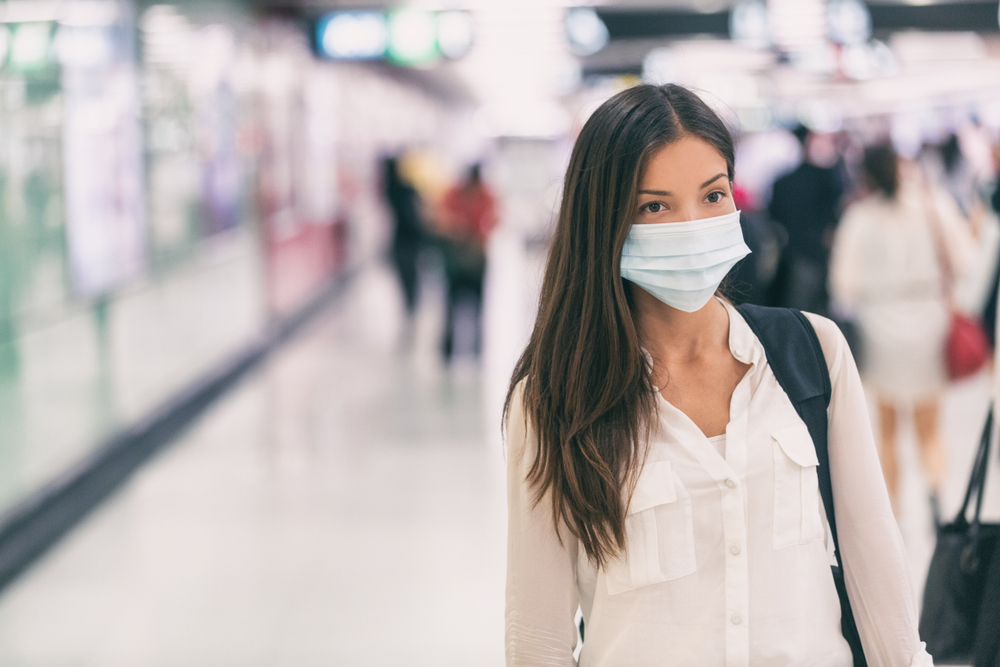Published December 19, 2021 in Edition.cnn.com
By Jelena Kecmanovic, CNN
(CNN)- Just when we thought we could exhale and enjoy the holidays, the newest coronavirus variant Omicron has given us another gut punch. With this renewed uncertainty hitting when we are already depleted, it’s increasingly hard to keep calm and carry on.As a psychologist, I hear every day from my clients how anxiety-provoking it is to again be thrown into the unknown, worrying about health and safety, hospital bed shortages, school closures and travel challenges. Besides getting vaccinated, masking and taking care of our health needs, we can’t control much about the pandemic — or the other things making us anxious. But there are things we can do about our responses to these events. Here are five science-based strategies to reduce anxiety and help you find grounding amid the storm.
1. Obtain quick relief
The best way to recognize that your fight-or-flight system has gone into overdrive is to listen to your body. Is your stomach in knots? Are your muscles strained even though you can’t remember when you last exercised? Is your pressure headache persisting beyond the usual remedies? If the physical signs of anxiety are sounding the alarm, fast-acting relaxation techniques can break the cycle.My favorite technique is to lie down on your back and place a hand on your chest and a book on your belly. Then breathe in such way that the book moves as much as possible while your hand stays still, for at least seven minutes. Keep your thoughts on your breathing so your mind doesn’t work at cross-purposes. You’ll be surprised how much calmer you feel at the end.Alternatively, fill a bowl with icy water and dip your face in up to your ears. Hold your breath, and keep your face in the water as long as you can stand it. This powerful practice activates your “mammalian dive instinct” and works quickly to lower your anxious arousal.
2. Resist toxic positivity
You might think that you need to banish anxiety altogether and force yourself to just look on the bright side, especially if you’ve been criticized for being a nervous Nellie. But this doesn’t work. Trying to suppress or avoid anxiety just makes it worse in the long run, research has shown.
Instead of judging yourself for being stressed or anxious, engage in self-compassion. You could channel your favorite loving grandparent or other relative whenever you slip into self-reproach. What would they say to you? How would they treat you? (Only pick a supportive family member or friend.)You can even stroke your own arm, cradle your face, or put a hand on your heart. Or write a kind letter to yourself like you would to a dear friend, and then read it as needed. These approaches are much more effective in reducing suffering than buying into toxic positivity. Remember, it’s OK to feel anxious and it’s OK to seek relief.
3. Reduce behaviors that feed anxiety
You have probably noticed that spending hours mindlessly scrolling through your Facebook or Twitter feed leaves you more anxious than when you started. And scientists have found that checking news frequently during the pandemic was harmful — 2.5 hours or more per day were related to significant anxiety.
But it’s so hard to stop! Tracking how much time you spend on social media sites is a first step in motivating change, and many smartphones can help. Then try removing social media apps from your phone so you can only access them from a browser. Finally, use a timer to stick to a predetermined period.Other behaviors that have been shown to increase anxiety include repeatedly seeking reassurance from others, procrastinating, and overdrinking. Getting inadequate sleep or exercise also are likely to make you more vulnerable to feeling out of sorts. Keep these in mind when you’re trying to lower your anxiety.
4. Zoom out to gain perspective
While the Omicron variant has thrown a very real wrench in our pandemic recovery, it’s important to keep things in perspective. Our minds often spiral into “what-ifs,” and we end up worrying about worst-case scenarios. To counter this tendency, think of best-case and most-likely-case scenarios as well, and then strategize how you’d prepare for the most likely one.
You can also visualize how your current worries might seem a day, week, month or year later. Or ask yourself how bad things are on a zero to 100 scale, with zero being a perfect world and 100 the worst imaginable event.Finally, talking to yourself in the third person might sound silly, but it’s worth trying. This method and referring to yourself by your own name have been shown to offer some distance from your current situation so you can examine it more calmly.
5. Get out of your mind
The best long-term antidote for anxiety is not relaxation, but engaging in something meaningful that connects you with others and the world around you. Briefly writing out our worries, and then identifying values and planning long-term goals ended up diminishing worry and anxiety, scientists found.Sign up for CNN’s Stress, But Less newsletter. Our six-part guide will inform and inspire you to reduce stress while learning how to harness it.Try stepping into nature, engrossing yourself in art or music, or exploring a new corner of your neighborhood — all of these can activate awe and transcendence. It also can help to immerse yourself in play with kids or pets, lose yourself in a project, or focus on how you can help others. The key is to find something you can control and can do right now.We can get outside ourselves in a purposeful way even while we bring anxiety along for the ride. Paradoxically, the more we let anxiety be there, the less it will have power over us.




